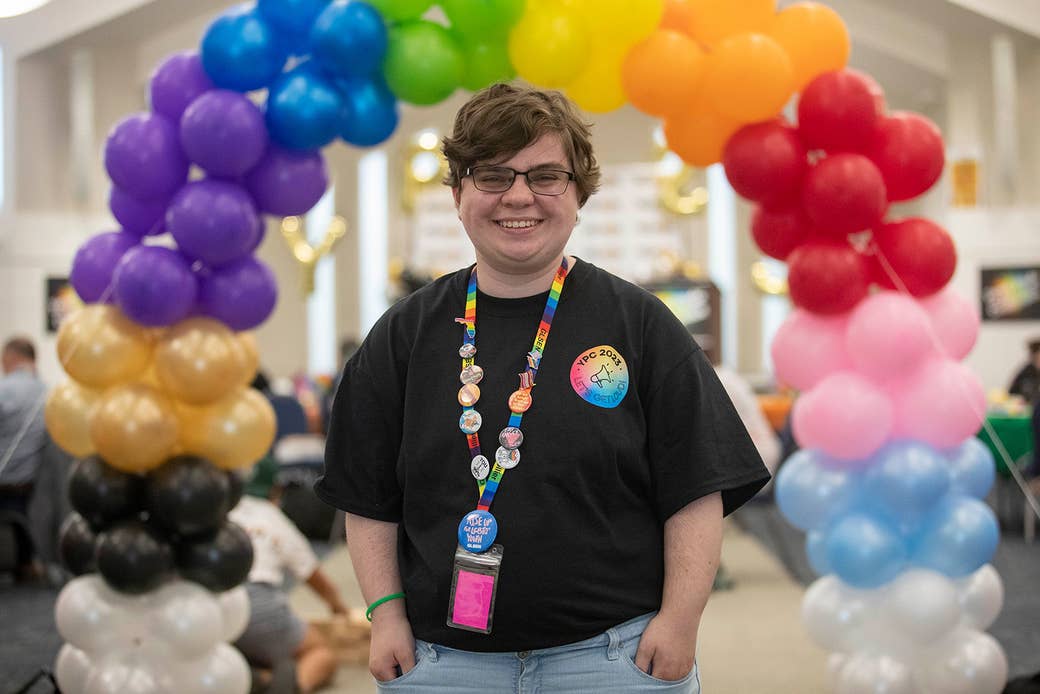
NAPLES, Florida — “I love Florida, but Florida doesn’t love me back.”
Those were the words of Ollie, a nonbinary high school senior in Collier County who has lived in Florida all their life, but who is now plotting their escape. Last year, extreme bullying at school forced Ollie to switch to a dual enrollment program at a local college. They can’t help feeling they were driven away because of their identity, cheated out of a more tolerant environment or safe space by much more powerful figures.
“I just felt completely dehumanized. I felt like a piece of meat. I felt like there was a perpetual target on my back,” Ollie told BuzzFeed News of the bullying they endured. “I didn’t feel like I was safe. And if you don’t even feel safe in a place of learning, how could you ever expect to actually prosper?”
Ollie still feels their adrenaline spike in terror when large groups of people approach them, but there is at least one place where they have felt it’s safe to exhale.
On Saturday in Naples, a longtime mecca for wealthy retirees where white Gulf Coast beaches meet webs of mangrove forests, Ollie and more than two dozen teens gathered in the annex buildings of a white-steepled Protestant church ringed by palm trees. They were all here at the Youth Pride Conference to discuss what it’s like to be a young queer person in Florida today.
The conference, open to kids in grades 6 to 12, was the work of GLSEN Collier County, one of 43 chapters of a national nonprofit founded by teachers in 1990 with the aim of helping LGBTQ youth. Now in its second year, the conference had two primary goals: to give queer kids tools to survive and to teach them how to thrive.
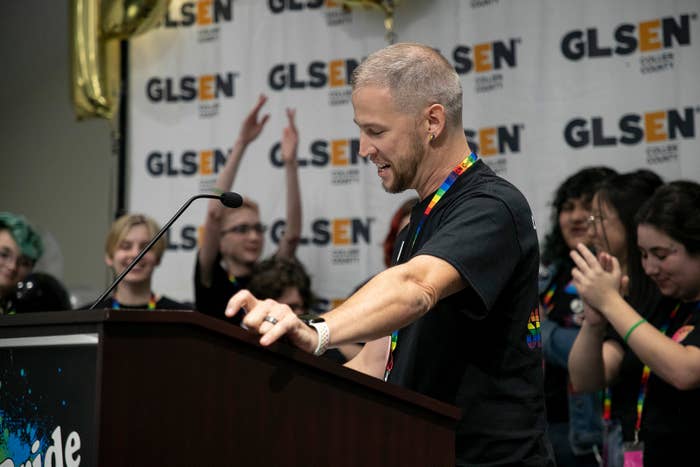
“I know after watching the kids last year and seeing the way they were liberated in a way I’ve never seen them, that it didn’t matter how many kids came,” said Daniel Shaw, a 40-year-old math teacher in Collier County and the GLSEN chapter director. “For every single one there, it had the power to change their lives and the trajectory of their lives in a significant capacity.”
Last year’s event included a drag performance that generated angry, sensationalist headlines in the Daily Mail and Fox News. The ensuing controversy triggered a protest of the conference by about 35 people, including members of the far-right Proud Boys, who held signs with the word “groomer” on them and called on children to repent.
“They were wearing masks. They were holding signs. It seemed like there were going to be threats of violence. It was much, much scarier,” said Via, a high school senior and lesbian who served as cochair of this year’s conference with Ollie.
While Saturday’s event was protest-free, a marked police car could still be seen in the parking lot as guests exited.
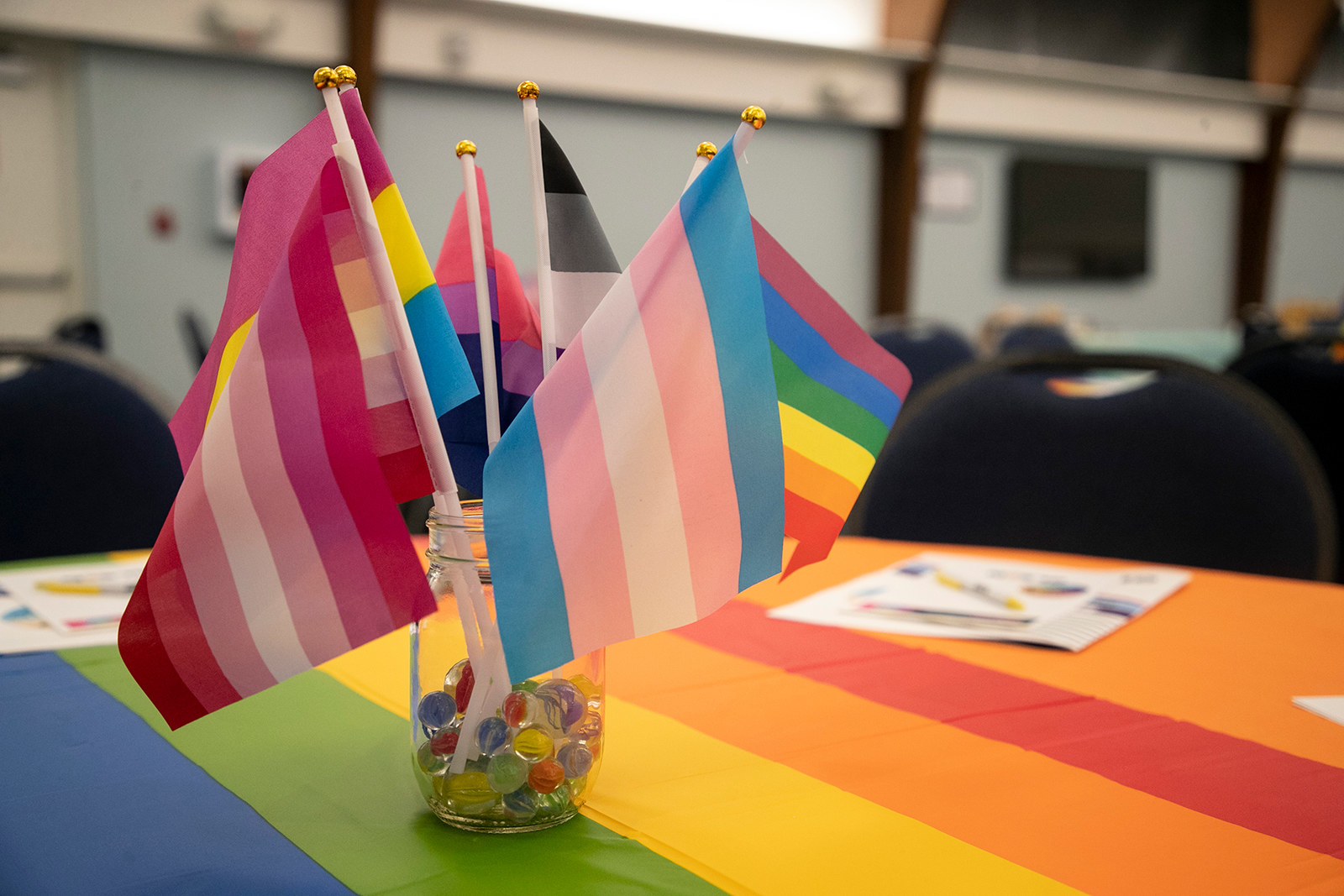
Inside, sitting at tables decorated with rainbows and practically every variation of the Pride flag, kids heard speeches from activists and organizers. They took notes and listened intently during breakout sessions on the legal landscape in Florida and how to be an activist. They talked about the history of book bans and what constitutes a healthy romantic relationship with a partner. And they wore shirts emblazoned with the words, “Don’t Say Gay….SHOUT IT.”
In a state that has helped lead a national crackdown on the rights of LGBTQ people, this gathering — small as it was — felt almost radical. Here, at this meeting of the resistance, which BuzzFeed News was the sole media outlet invited to attend, the teens could get information they’ve been blocked from receiving in schools and swap stories of shared experiences. Even simply talking with adults and other kids about what it feels like to be queer was itself practically an act of defiance.
“Just literally for one day you can be completely unabashedly yourself and be that queer teen that Florida seems to be afraid of,” Ollie said. (BuzzFeed News is withholding the last names of minors interviewed for this story to protect their identities. All were interviewed with the written consent of their parents.)
Feeling free to be yourself was a common refrain among those who attended. Kids introduced themselves with their pronouns and wore what clothing they wanted. One student, Aurora, arrived draped in the pansexual flag as if it were a superhero cape, while another senior named William changed into a skirt upon arriving.
“I can’t dress the way I’m dressing now in school. This is my alter ego,” William said. “But I feel like I could just walk around here — like I could run.”
To be a queer child in Florida today is to have a target placed on your back, not just by the bullies in school hallways who might bark at you as you pass, but by your own government. Under the administration of Republican Gov. Ron DeSantis, the Sunshine state has been at the forefront of a dark national cloud curtailing the rights of LGBTQ people.
This effort has been two-pronged: a legal bombardment of bills framed around protecting parents’ rights and a cultural or media strategy that pushes an unfounded moral panic in order to justify the crackdown. (It was DeSantis’s own firebrand press secretary who helped spur the return of the hateful trope of “grooming” to national prominence last year.)
“The same generation that never wanted to see queer people be married are now seeing queer people come out in middle school like they’Zander Moriczve never done before. So there's anger and hurt there that can be activated,” said Zander Moricz, a Florida high school graduate who addressed the Naples conference on Saturday after going viral last year for his commencement speech in which he skirted a ban on using the word “gay” by replacing it with references to his curly hair.
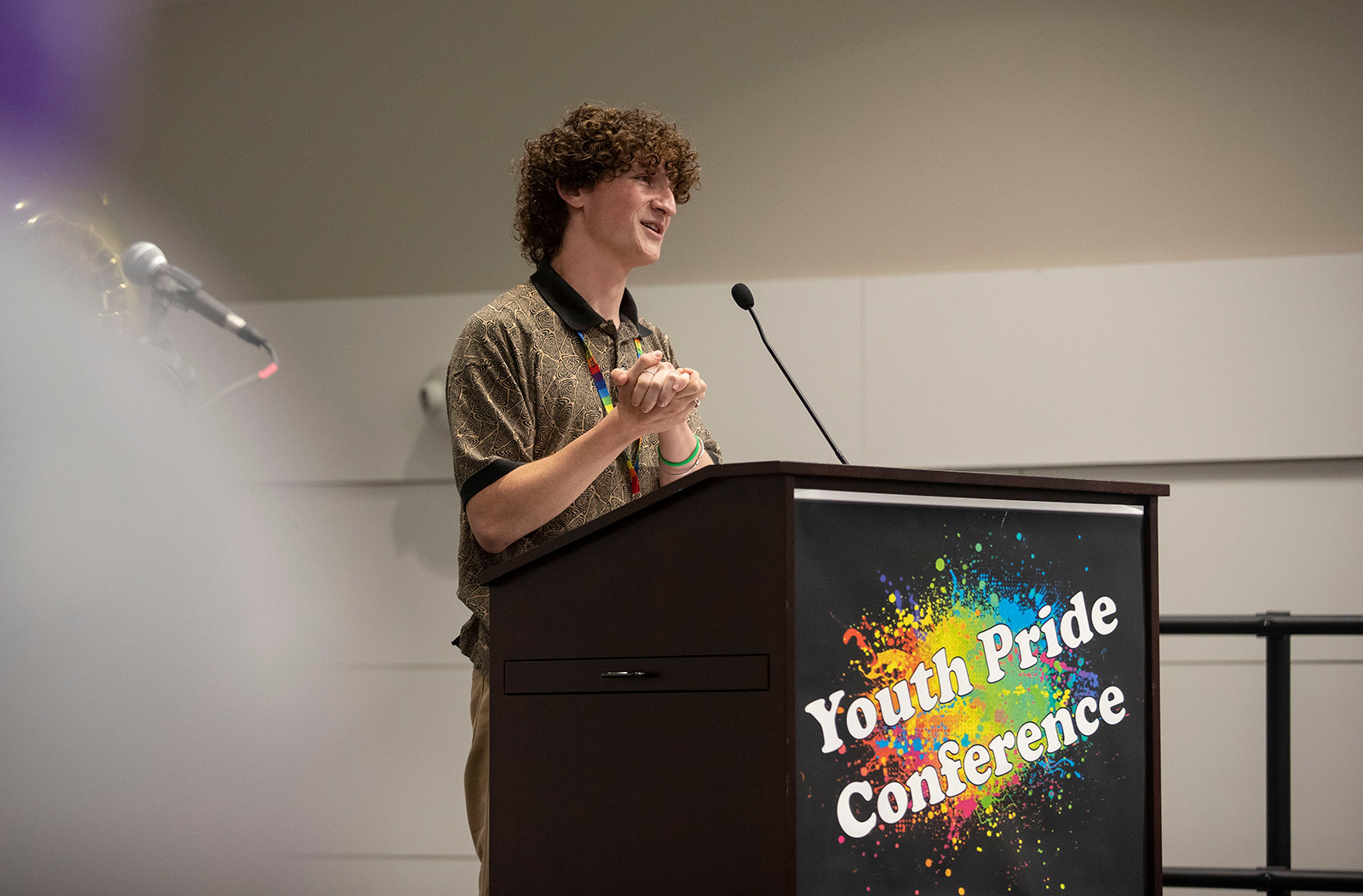
Most prominently, there was the passage in March last year of the Parental Rights in Education Act, known widely to critics as the “Don’t Say Gay” law, which restricted “classroom instruction … on sexual orientation or gender identity” for children up to the third grade and discussions of those subjects “in a manner that is not age appropriate or developmentally appropriate for students.”
But the new law isn’t just affecting young children. It has chilled speech in classrooms across Florida, with school officials fearful of lawsuits taking down rainbow decorations or avoiding certain topics. Some have felt afraid to mention their own same-gender spouses. Just last week, days before the kids gathered in Naples, DeSantis signaled his intention to expand “Don’t Say Gay” from its current form to officially cover students from grades 4 to 12.
Another law has empowered any resident of Florida to lodge objections to material in classrooms or school libraries, which conservative groups have seized on to lobby for scores of books that discuss LGBTQ or race issues to be banned. Bookshelves have been covered to shield them from view as their contents await screening and approval by certified officials.
The most victimized students in Florida, though, have been transgender or nonbinary children. In addition to a 2021 law banning transgender girls from playing in sports teams for student-athletes who were assigned female at birth, a ban on gender-affirming medical care for transgender minors took effect this month.
This law prompted Kayak, a 17-year-old junior who identifies as transmasc nonbinary, to race to begin hormone replacement therapy in December so they’d be covered by an exception that protects minors who have already started their treatments
The combined effect of these attacks has left LGBTQ students like Kayak feeling dismayed or worse. According to a 2022 survey from the Trevor Project, a suicide prevention nonprofit, 45% of Florida LGBTQ youth seriously considered suicide in the past year and 16% attempted it. These rates are higher for transgender or nonbinary youth at 54% and 20%, respectively.
The Trevor Project notes that LGBTQ young people are not inherently prone to being at a higher risk for suicide, but rather find themselves at increased risk due to social stigma or mistreatment. Their report found that 74% of respondents had experienced discrimination in the last year, while 86% felt recent politics had negatively affected their well-being sometimes or a lot. Laws framed as protecting children are actively harming them.
“It’s just scary to exist here because I’m becoming a queer adult. And when you transition from a queer child to a queer adult, you go from a victim to a ‘groomer,’ to a pedophile,” Kayak said. “As a trans guy, I’m terrified of being a trans adult because then I’m a ‘bad person.’”
But the political onslaught isn’t over. There are 10 more bills still pending in the state legislature that the ACLU has identified as harmful to LGBTQ people, including a bill restricting bathroom use for transgender people and a broadly worded bill that would, among other things, require all transgender youth to detransition. If it’s passed, parents who try to seek gender-affirming care for their children in another state could have their kids removed from their custody.
It was for these reasons that Shaw, the GLSEN chapter director, said the conference discussion on gender-affirming care was critically important because it would share information that some kids might be desperately trying to look for online. Instead, nurse Mishya Nishioka, the director of gender-affirming hormone therapy services for Planned Parenthood of Southwest and Central Florida, talked with interested attendees about hormone options, fertility preservation, and updating gender identity on legal documents.
“The presentation for some of those kids is going to be lifesaving,” Shaw said.
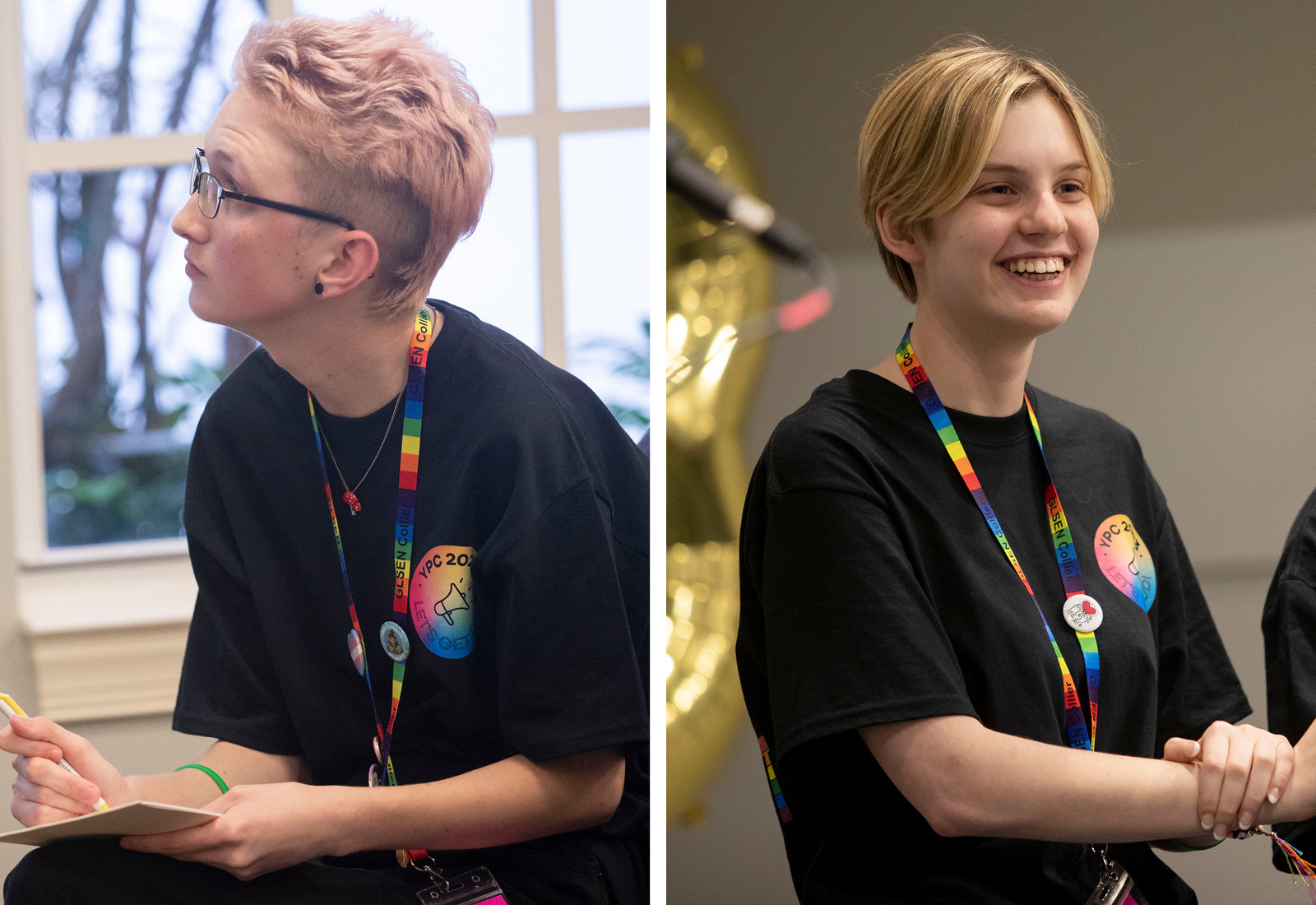
Shaw estimated that he’s been putting in 20 to 30 hours of extra work per week to plan for the conference with his so-called Shine team of student organizers that included Ollie, Via, and Kayak, among others. It’s a lot for a full-time public school teacher who has a husband and two young boys at home, but Shaw views it as a higher calling.
Raised in a conservative Baptist family in Indiana to whom he did not come out as gay until he was 28, Shaw said he had been transformed by hearing the struggles of his transgender and nonbinary students. “Nobody can listen to their stories and not have it be personal. It’s not possible. Not if you’re human,” Shaw said.
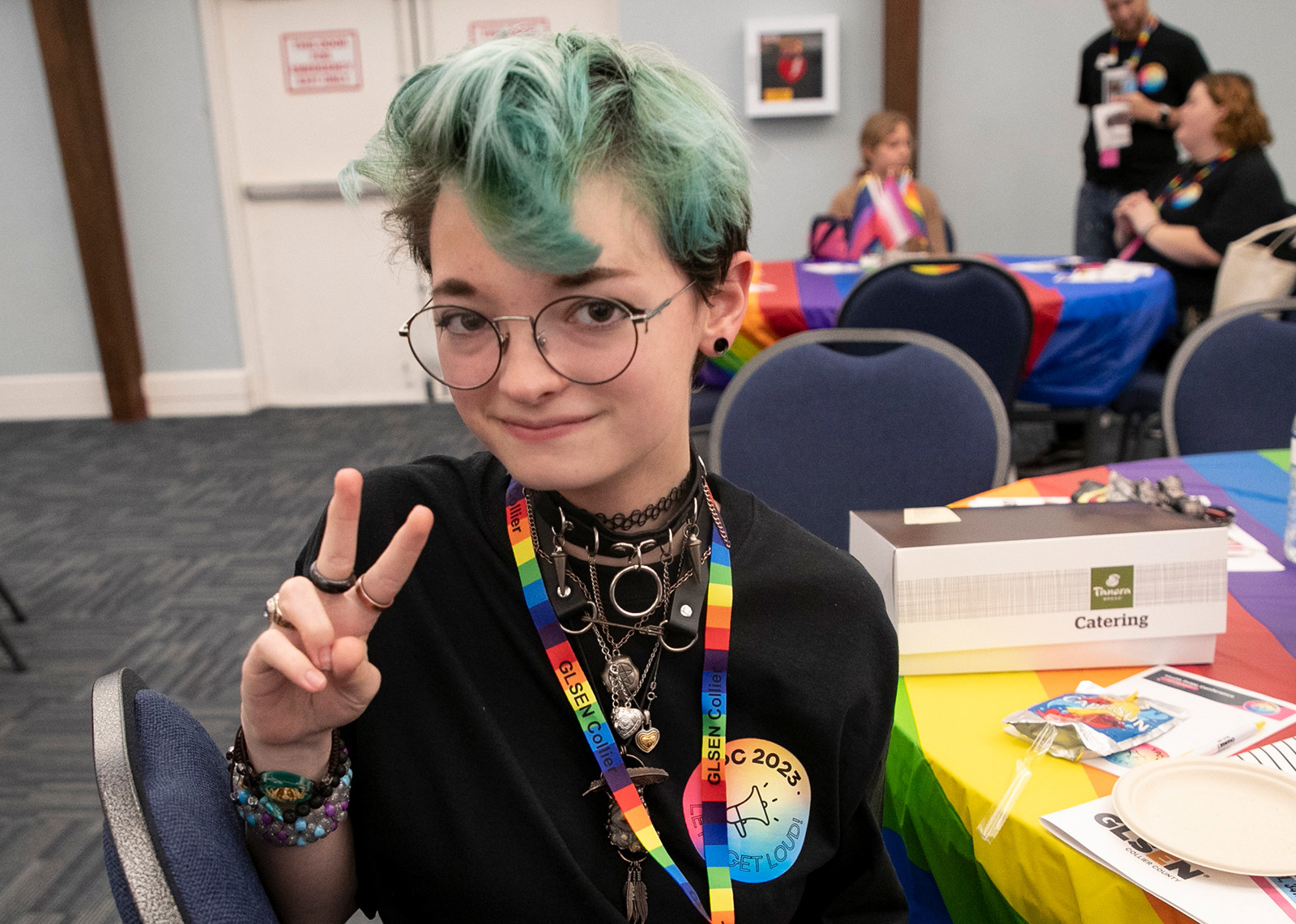
The respect — and gratitude — is mutual. “He’s a pretty passionate person. He likes to do what he likes to do. He likes to say what he believes in. He doesn’t like to step down,” said Ash, a nonbinary senior at Shaw’s school and another Shine organizer. “Even though he might have the risk of getting fired because of him standing up for GSA,” the school’s Genders and Sexualities Alliance, “he’d rather have his students be safe rather than anything else.”
Shaw doesn’t tell the kids that he thinks the fight they’re in now will be a long one. It’ll take a decade or two to unwind the legislative damage that’s been done to the queer community in Florida, he believes. But right now his students are mostly in a fight for survival and Shaw thinks he can help them by staying true to who he is, even in his own classroom.
“I’m not going to not talk about my life,” Shaw said. “I refuse to go back into the closet because you want to make me controversial.”
Moricz, the viral high school graduate invited to address the conference guests, delivered a similar message in his keynote address. Moricz has put his studies at Harvard University on hold for a year to devote himself to activism, describing this current moment as an emergency. “We cannot change laws today. But that doesn’t mean we can’t change laws tomorrow if we start today,” he said.
Funding has already been secured for next year’s conference thanks to a large donation from the Dyson Foundation and its trustee and director Tim Massie, who has been splitting his time between New York’s Hudson Valley and the Naples area for nine years.
Massie attended Saturday’s conference with Pete Clark, his husband and partner of more than four decades. Together, the pair marveled at the courage of Florida’s queer kids — at how much has changed since they were their age and how much progress has been lost.
“I don’t want you to despair because there are groups out there, like GLSEN, to let you know you are supported, you are loved,” Massie told the crowd. “You are — right now — who you were meant to be.”
As the conference ended, local queer musician Sheena Brook took the stage a final time, strumming her guitar to a mashup of Sara Bareilles’s “Brave” and Katy Perry’s “Roar.”
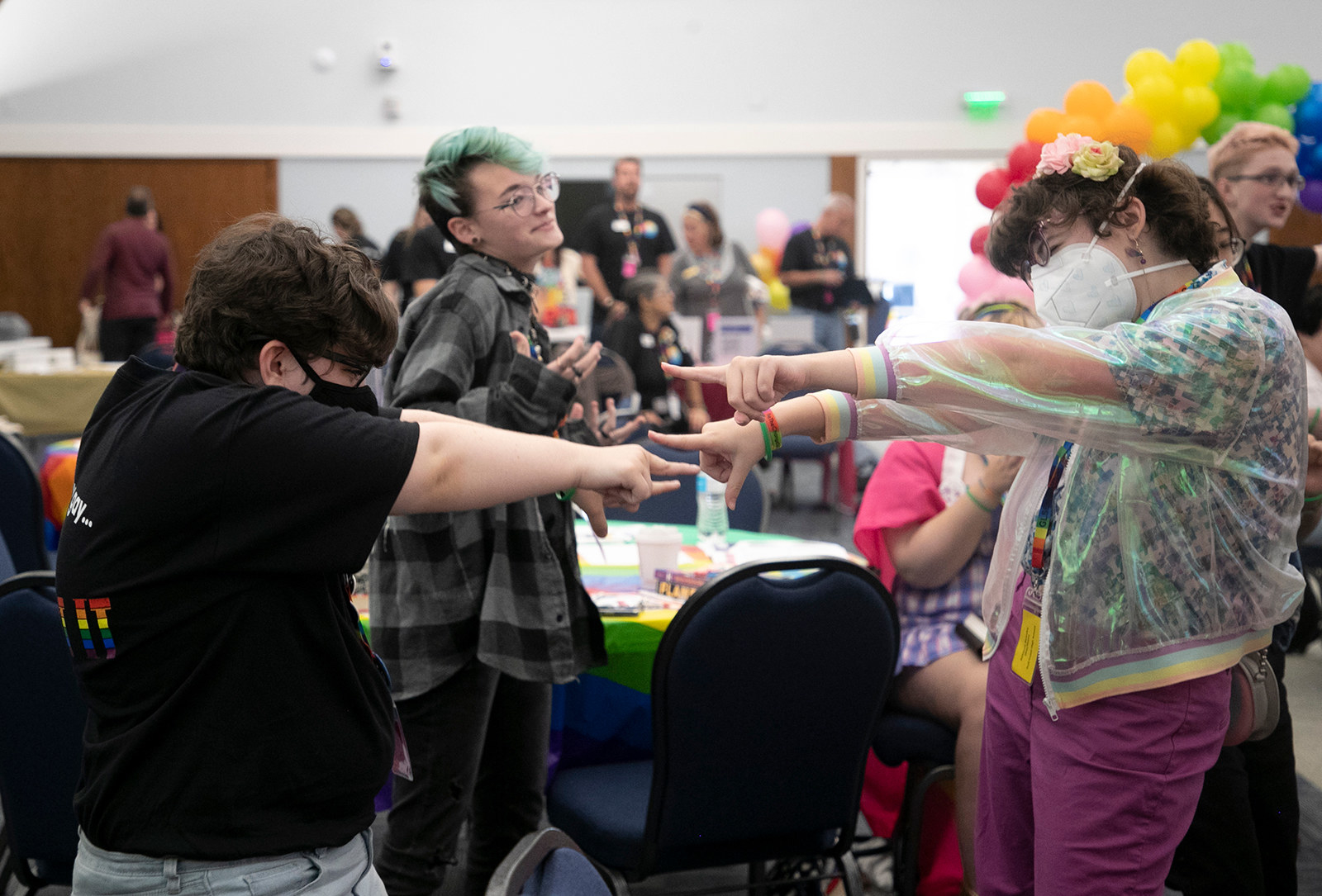
One by one, the kids stood up from the tables and started dancing — awkwardly at first, but then giggling at how awkward it was, which made it sort of fun. Soon, they were all on their feet, dancing and laughing. Kayak even went over to a shy teen who’d been sitting alone in the corner and dragged them onto the makeshift dance floor. They too were now smiling.
It was an unscripted scene of pure, goofy happiness, and for a brief moment they weren’t political targets or media subjects or problems to be fixed; they were just kids being kids.
Shaw leaned in, his eyes welling with tears, and whispered, “This is why we do it.” ●

